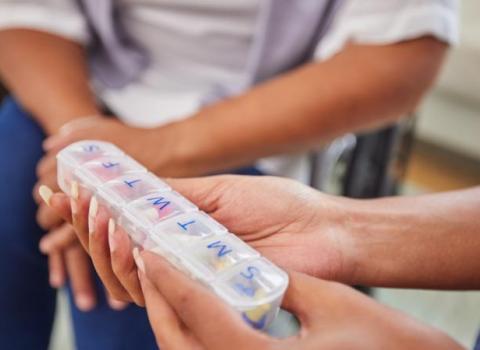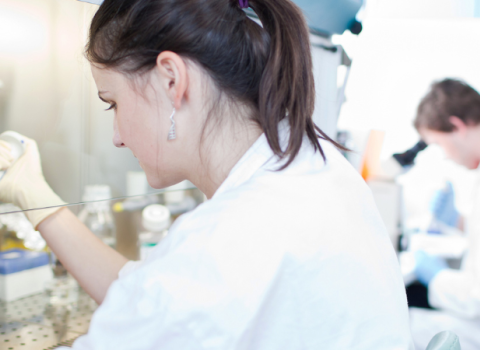Imagine being able to monitor your patients’ mobility and health with the help of small sensors and personalized algorithms – on a daily basis, without them having to come to your clinic regularly and at predetermined intervals. Impossible? Not according to the Innovative Medicines Initiative, who dedicated 25.4 million euro of public money to this endeavor, matched by 23.6 million euro from EFPIA (European Federation of Pharmaceutical Industries and Associations). The one project selected for funding is MOBILISE-D, led by the University of Newcastle Upon Tyne and Novartis. With an allocated budget of 2.16 million euro, NTNU is a significant player in this large consortium that consists of 35 public and private partners.
The NTNU team behind the project is part of the Gold Card group in Health Technology at the Faculty for Medicine and Health Sciences, and has several central tasks in the 5-year project. “We are responsible for following one of the largest patient cohorts in the project, and leader for stakeholder engagement and dissemination of the project results”, says professor Beatrix Vereijken, Department of Neuromedicine and Movement Science, who is heading the NTNU team. In Trondheim, 250 hip-fracture patients will be followed over 2 years, during which their daily-life mobility will be mapped to improvements - or deterioration - in their health.
The results of MOBILISE-D will facilitate drug development, develop a roadmap for clinical implementation of innovative tools to identify, stratify and monitor disability in patients, and enable cost effective, wide access to clinical management and personalized healthcare.
“This is a unique and exciting opportunity for NTNU researchers to broaden our collaboration with global pharmaceutical industry. Stay tuned, you will hear more from us!”
This release was first published 15 Nov 2018 by NTNU.





 A unique international forum for public research organisations and companies to connect their external engagement with strategic interests around their R&D system.
A unique international forum for public research organisations and companies to connect their external engagement with strategic interests around their R&D system.